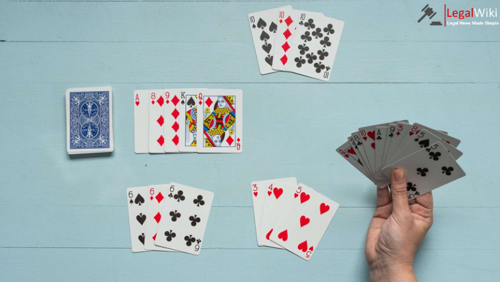Madras High Court Upholds Tamil Nadu’s Night Ban and Aadhaar KYC for Online Gaming

Author: Yashashvi Mishra, 5th Year Law Student, University of Allahabad
Introduction
In a landmark decision on June 3, 2025, the Madras High Court upheld the Tamil Nadu government's stringent regulations on online real-money gaming. These measures, aimed at curbing the adverse effects of online gaming, include a night-time ban on gameplay and mandatory Aadhaar-based Know Your Customer (KYC) verification. The ruling reinforces the state's commitment to safeguarding public health and addressing concerns related to online gaming addiction and financial harm.
Background
The Tamil Nadu government enacted the Tamil Nadu Prohibition of Online Gambling and Regulation of Online Games Act, 2022, establishing the Tamil Nadu Online Gaming Authority (TNOGA). In 2025, TNOGA introduced specific regulations targeting real-money games like rummy and poker. Key provisions include:
- Night Ban: Prohibiting gameplay between 12:00 AM and 5:00 AM.
- Mandatory Aadhaar KYC: Implementing a two-step Aadhaar-based verification process for players.
- Age and Monetary Restrictions: Setting age limits and caps on betting amounts.
- Advertising Controls: Regulating promotional content to prevent misleading advertisements.
These regulations were challenged by online gaming companies and players, who argued that the measures infringed upon their rights and exceeded the state's legislative competence.
Court's Rationale
A division bench comprising Justices S.M. Subramaniam and K. Rajasekar dismissed the petitions, affirming the validity of the state's regulations. The court's key observations include:
- Legislative Competence: The court held that the state has the authority to legislate on matters concerning public health and trade under Entries 6 and 26 of the State List in the Constitution. The regulations aim to protect citizens from the adverse effects of online gaming, thereby falling within the state's purview.
- Reasonable Restrictions: The night ban and Aadhaar-based KYC were deemed "reasonable restrictions" under Article 19(6) of the Constitution. The court emphasized that these measures are necessary to prevent addiction, financial losses, and other health-related issues associated with online gaming.
- Right to Privacy: Addressing concerns about privacy, the court referenced the Supreme Court's judgment in Justice K.S. Puttaswamy (Retd.) vs. Union of India, stating that the right to privacy is not absolute and can be curtailed in the interest of public welfare. The Aadhaar-based KYC process was considered a proportionate measure to ensure responsible gaming.
Implications of the Ruling
The judgment has significant implications for the online gaming industry:
- Regulatory Precedent: Tamil Nadu becomes one of the first states to implement and uphold stringent regulations on online real-money gaming, potentially setting a precedent for other states to follow.
- Enhanced Player Protection: The measures aim to protect vulnerable individuals, especially minors, from the risks associated with online gambling.
- Industry Compliance: Online gaming platforms operating in Tamil Nadu must now ensure compliance with the new regulations, including implementing robust KYC processes and restricting gameplay during specified hours.
Conclusion
The Madras High Court's decision underscores the state's proactive approach to addressing the challenges posed by online real-money gaming. By upholding the night ban and mandatory Aadhaar KYC, the court has reinforced the importance of balancing individual freedoms with the collective interest of public health and safety. As the online gaming landscape continues to evolve, this ruling may serve as a benchmark for future regulatory frameworks across India.
To update yourself with LegalNews, visit legalwiki.co

![Join Indian Army in Judge Advocate General Branch, Chennai [Unmarried Male and Female]- Apply Now!](/content/images/size/w600/2026/02/jag.png)


